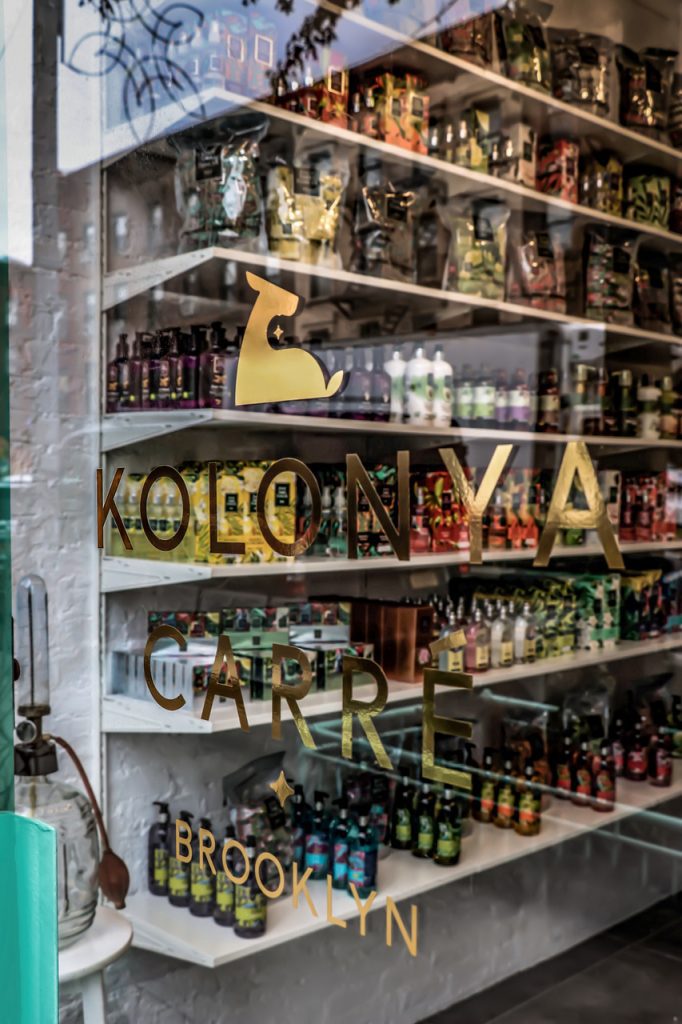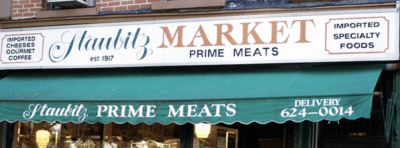A pandemic-friendly Turkish staple finds a home in Park Slope
Kolonya, a traditional symbol of Turkish hospitality, refreshes as it kills germs and is at the heart of the new boutique Kolonya Carré
 In November, in the middle of a pandemic, Yeliz Kartal Brackman invested every cent she had and opened Kolonya Carré in the heart of Park Slope, Brooklyn.
In November, in the middle of a pandemic, Yeliz Kartal Brackman invested every cent she had and opened Kolonya Carré in the heart of Park Slope, Brooklyn.
At a time when businesses are shuttering and storefronts remain empty, her pretty shop on Seventh Avenue is a love letter to an essential cultural practice centered around good health and hygiene. The star is kolonya, an aromatic tonic she grew up with at home in Turkey. With its historic landmarked brownstones, the neighborhood’s beauty appealed to her as much as its support of small businesses.
It was a bold move, and counterintuitively, her timing was perfect: The pandemic has revealed that, even with a vaccine, there are some things that we’ll be living with for a very long time. Hand sanitizer is one of them.
If you’ve ever been to Turkey then you’ve most likely been on the receiving end of this symbol of the country’s hospitality. Kolonya is the first thing offered when someone visits a home, a bottle of it passed around on an intercity bus or after riding the metro to cleanse and refresh your hands.
“I didn’t even bother changing the name,” says Yeliz, who was surprised her American friends had never heard of the ubiquitous liquid. “Everyone in Turkey grows up using kolonya. Every house has at least one glass Kolonya bottle.”
Kolonya (or cologne, originally from Cologne, Germany) was created more than two centuries ago during the Ottoman Empire as a unisex perfume and refreshing cleanser. Today, it’s a soothing and luxe alternative to the sticky gel-based or stinky sprays we’ve been slapping on our paws the past year. With an alcohol content of 80 percent, it’s got the seal of approval from the scientific community (effectiveness against Covid starts at 65 percent alcohol). As such, its popularity as a disinfectant soared at the start of the pandemic, with other countries rushing to get their hands on it, literally: Because lemons are a key ingredient Turkey had to cap exports of the citrus fruit to Europe and beyond when demand soared.
The Kolonya Carré boutique smells clean and bright. Deep sea green walls lined with shelves showcase sparkling bottles of kolonya in various scents, including lemon, olive blossom, and tobacco flower, among others. When applied to hands, there’s no stickiness or astringent feel. All the light fragrances, suitable for men and women, extend to a wide variety of products: shampoo, hair conditioner, hand and body lotion, handmade soaps, and toothpaste. Most are 100 percent natural and all are vegan certified. Handwoven Turkish towels, part of Turkey’s bath and hygiene culture, are also for sale, and evoke the hammam experience, something Yeliz is happy to explain to her customers.
A large, vintage, oblong-shaped glass vessel with a gauge, called an imbik or distiller, has pride of place in Kolonya Carré’s window. “In Turkey, after emptying an individual bottle, we go to a local shop and refill our glass bottles from this” she explains. “My parents have five or six bottles which are at least 30 years old, so you can see how environmentally-friendly and sustainable this tradition has always been.” She’s taken a cue from this tradition and plans to offer the service herself at some point soon.
You might also like 


























